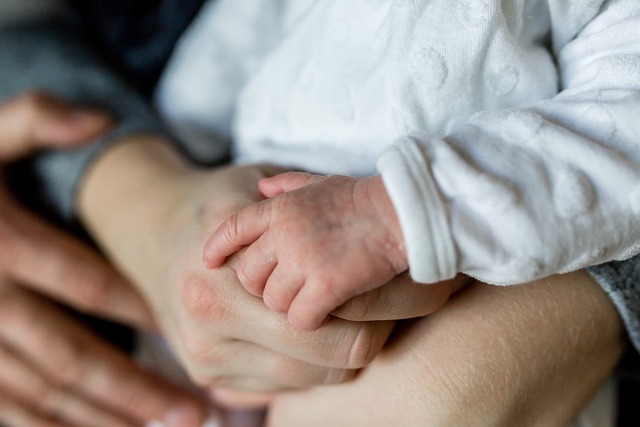Child welfare hearings in Oregon are governed by stringent laws prioritizing the best interests of children involved in DHS child welfare cases. Parents have substantial legal protections and rights, including legal representation, throughout these proceedings. Marion County child advocacy centers provide crucial support, while Oregon family law outlines specific procedures for navigating sensitive matters effectively. Child welfare legal services are instrumental in safeguarding both parents' and children's rights within DHS cases. The Marion County Advocacy Center acts as a cornerstone, offering expert guidance tailored to Oregon family law and child protective services law, ensuring fair outcomes and the well-being of vulnerable children and families.
“Navigating complex legal landscapes can be daunting, especially when it concerns a child’s welfare. This comprehensive guide aims to demystify the process for parents facing DHS child welfare cases. From understanding child welfare hearings and their procedures to exploring parental rights protection and the crucial role of Marion County Child Advocacy, we provide an overview. Additionally, we delve into Oregon family law provisions for child protective services, common appeal issues, and available resources, empowering parents with knowledge in these critical matters.”
- Understanding Child Welfare Hearings: An Overview for Parents
- Parental Rights and Legal Protection During DHS Child Welfare Cases
- The Role of Marion County Child Advocacy in Supporting Vulnerable Children
- Navigating Oregon Family Law: Provisions for Child Protective Services
- Common Issues in Child Welfare Appeals and Effective Legal Strategies
- Resources and Support for Families Involved in DHS Child Welfare Proceedings
Understanding Child Welfare Hearings: An Overview for Parents

Child welfare hearings are crucial proceedings designed to safeguard the best interests of children involved in DHS child welfare cases. As a parent, understanding this process is essential for protecting your rights and ensuring a fair outcome. In Oregon, child protective services law guides these hearings, with Marion County child advocacy playing a vital role in supporting vulnerable youth.
These hearings provide an opportunity to present evidence, share perspectives, and advocate for the child’s well-being. Parents are entitled to legal guidance throughout this journey, ensuring their rights are respected and their voices heard. Oregon family law outlines procedures that must be followed, offering a structured framework to navigate these sensitive matters effectively.
Parental Rights and Legal Protection During DHS Child Welfare Cases

In DHS (Department of Human Services) child welfare cases, parental rights and legal protections are paramount. When a child is involved in the Oregon child protective services law, parents have the right to legal representation and counsel during every stage of the process, including hearings and appeals. Marion County child advocacy centers offer specialized services to support families navigating these complex cases, ensuring that their rights under Oregon family law are upheld.
Parents facing DHS intervention should be aware of their entitlements, such as the right to question witnesses, present evidence, and cross-examine opponents. Legal guidance from experienced attorneys specializing in child welfare legal services can significantly impact the outcome of a case. Understanding the procedures and protections available is crucial for parents to effectively advocate for themselves and their children’s well-being.
The Role of Marion County Child Advocacy in Supporting Vulnerable Children

Marion County Child Advocacy plays a pivotal role in supporting vulnerable children and families involved in child welfare proceedings. As a specialized unit, they offer crucial legal guidance and representation to children and their parents or guardians in DHS child welfare cases. Their primary focus is to ensure that the rights of both the child and the parent are protected throughout the entire process, from initial hearings to appeals.
By providing expert legal services tailored to Oregon family law and child protective services law, Marion County Child Advocacy helps navigate the complex landscape of child welfare legal services. They offer a safe space for children to share their experiences and concerns, enabling them to participate in decisions that affect their future. This support is vital, especially considering the sensitive nature of these cases and the long-term impact on the child’s well-being and development.
Navigating Oregon Family Law: Provisions for Child Protective Services

Navigating Oregon Family Law plays a pivotal role in ensuring the well-being and protection of children involved in protective services cases. When it comes to DHS child welfare cases, understanding the state’s legal framework is essential for all parties involved—from parents fighting to retain their parental rights to advocates working within Marion County child advocacy programs.
The Oregon family law pertaining to child protective services outlines clear procedures for hearings and appeals, aiming to balance the protection of vulnerable children with the preservation of parental rights. These laws guide every step of the process, from initial interventions by child welfare agencies like DHS up to the final resolutions in court or through alternative dispute resolution methods. Key provisions focus on ensuring due process, fair treatment, and the best interest of the child as the paramount concern.
Common Issues in Child Welfare Appeals and Effective Legal Strategies

Child welfare appeals often revolve around complex issues that require careful navigation through Oregon family law and DHS child welfare cases. Common challenges include disputes over parental rights protection, especially in Marion County child advocacy circles, where decisions regarding a child’s safety and future placement are at stake. These hearings can be particularly delicate, as they involve the well-being of vulnerable children and the rights of their parents or guardians.
Effective legal strategies for these appeals emphasize thorough preparation, meticulous documentation, and a deep understanding of both state law and the specific circumstances of each case. Lawyers advocating for parental rights protection must demonstrate how their clients’ actions were in line with child protective services law while also addressing any valid concerns raised by Child Welfare Services. Building strong arguments based on evidence and legal precedents is crucial to ensuring fair outcomes, especially when navigating the intricate processes within Marion County’s child advocacy system.
Resources and Support for Families Involved in DHS Child Welfare Proceedings

Families involved in DHS (Department of Human Services) child welfare proceedings often face complex and emotionally challenging situations. Fortunately, various resources and support services are available to navigate the legal process and protect parental rights. Oregon’s child protective services law provides a framework for ensuring the safety and well-being of children while also recognizing the importance of family preservation.
The Marion County Child Advocacy Center serves as a vital resource for families in these cases, offering comprehensive support services tailored to their unique needs. This includes legal aid, counseling, and advocacy to help parents understand their rights and options throughout DHS child welfare cases. Additionally, local Oregon family law attorneys specializing in child welfare legal services can provide guidance on navigating court procedures, ensuring the best possible outcome for both parents and children involved.






